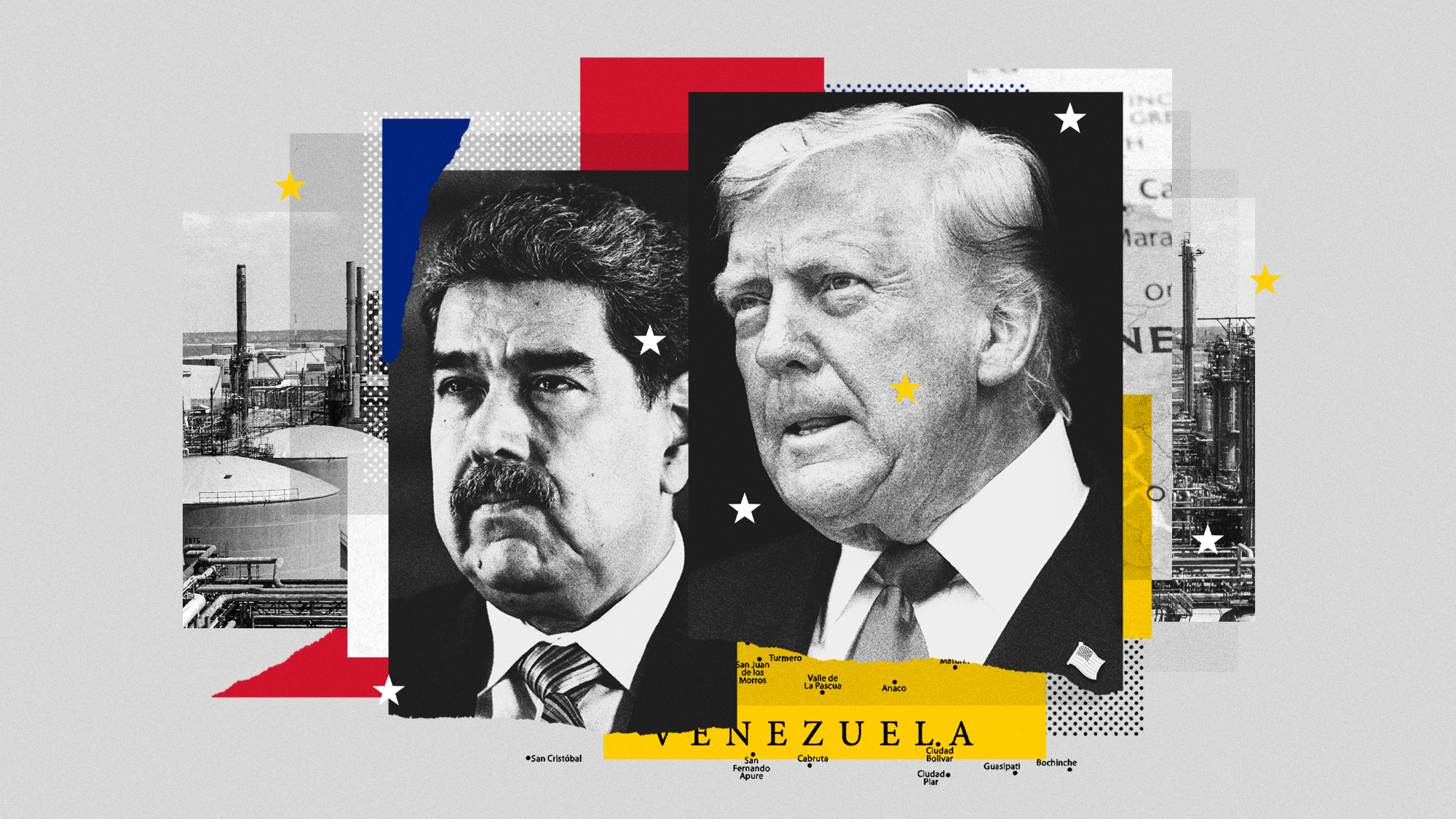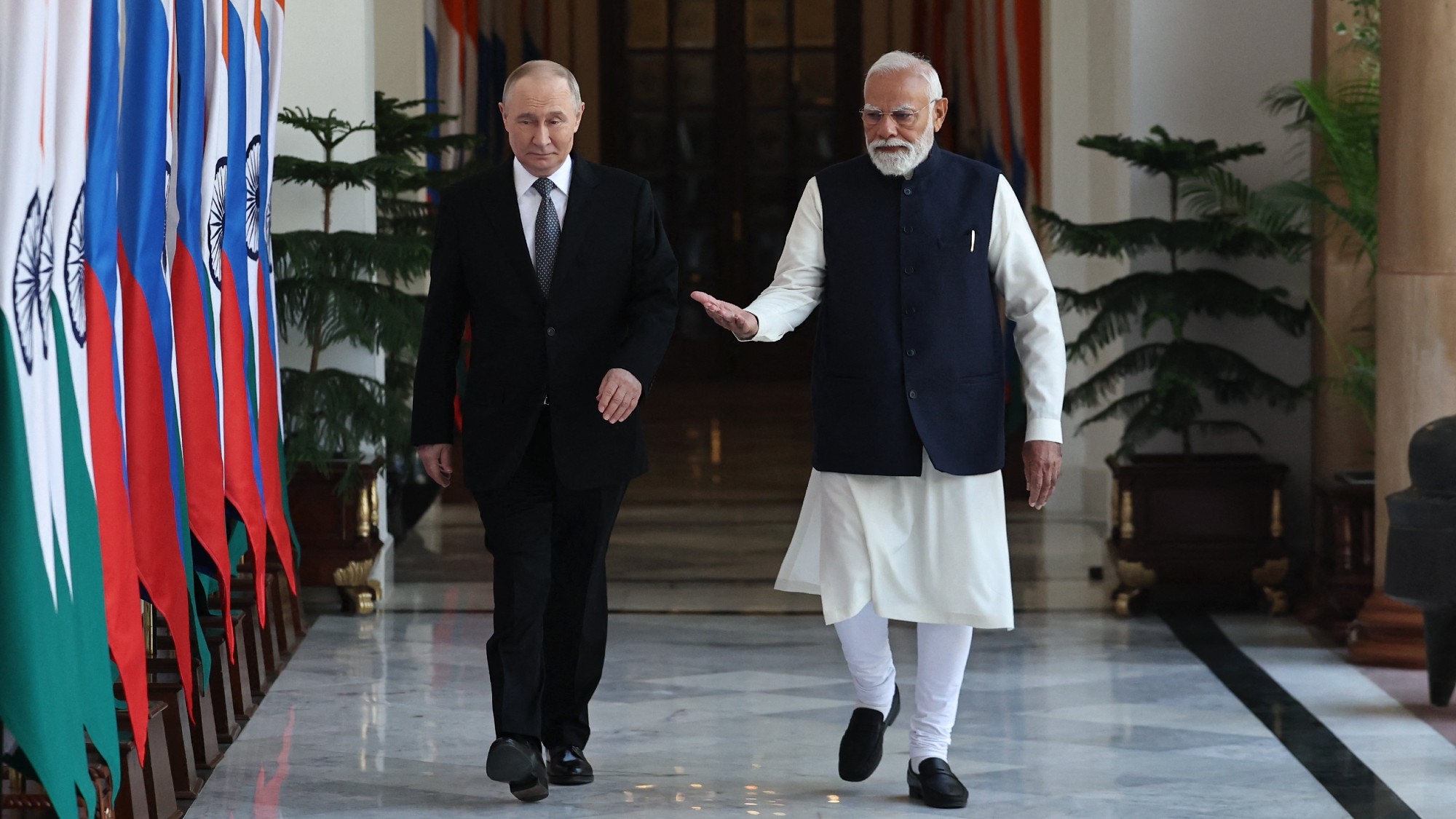Russian influence on Brexit vote ‘unquantifiable’
Report into UK vote meddling will not be published in full until after the election, minister says

A free daily email with the biggest news stories of the day – and the best features from TheWeek.com
You are now subscribed
Your newsletter sign-up was successful
A long-awaited report into alleged Russian meddling in British politics will not be released until after the general election next month, security minister Brandon Lewis has said.
The cross-party intelligence and security committee (ISC) completed its 18-month investigation into allegations of Russian activity aimed at UK elections some weeks ago and it has since been cleared by the security services for publication.
However, the government has previously said the report had not been published because of necessary procedure whereby vetting it would take several weeks. Lewis told Sky News the report could not be released during the so-called “purdah” period which sets rules on government announcements during an election campaign.
The Week
Escape your echo chamber. Get the facts behind the news, plus analysis from multiple perspectives.

Sign up for The Week's Free Newsletters
From our morning news briefing to a weekly Good News Newsletter, get the best of The Week delivered directly to your inbox.
From our morning news briefing to a weekly Good News Newsletter, get the best of The Week delivered directly to your inbox.
“We want to make sure, particularly where national security is involved, we go through that process properly and thoroughly,” he said. “We can’t publish things during the general election... but after the general election that report will be published.”
Despite this, “Prime Minister Boris Johnson is under growing pressure to publish the report,” says Business Insider.
According to Reuters “opponents have accused the government of sitting on the report which has been cleared by the security services, because it might contain embarrassing revelations about Prime Minister Boris Johnson and his party”.
Last week, former US presidential candidate, Hilary Clinton, said it was “inexplicable and shameful” that the government had not already released its findings.
A free daily email with the biggest news stories of the day – and the best features from TheWeek.com
She told the BBC she was “dumbfounded” by the decision and added: “Every person who votes in this country deserves to see that report before your election happens.”
The widow of Russian dissident Alexander Litvinenko, who was murdered with a radioactive isotope in 2006, has since sent Johnson a letter telling the prime minister she planned to take legal action against the government for failing to release the findings.
Yesterday The Sunday Times published extracts from the report, revealing Russian interference may have had an impact on the Brexit referendum, but the effect was “unquantifiable” and it could not say if it had affected the result of the 2016 vote.
Nevertheless, Emily Thornberry, the shadow foreign secretary, said the disclosure raised “serious questions” about the safeguards in place for the general election next month.
“Boris Johnson therefore needs to clear up the confusion, spin and speculation around this ISC report by publishing it in full at the earliest opportunity. If not, people will rightly continue to ask: what is he trying to hide from the British public and why,” she said.
The Sunday Times says the report “is understood to have criticised British intelligence services for failing to devote enough resources to tackling threats from Vladimir Putin’s regime”.
Intelligence officials who have either seen or been briefed on the document told the paper: “The government’s refusal to publish the report has been very damaging to the British intelligence community, because it suggests that we have something major to cover up.”
–––––––––––––––––––––––––––––––For a round-up of the most important stories from around the world - and a concise, refreshing and balanced take on the week’s news agenda - try The Week magazine. Get your first six issues for £6–––––––––––––––––––––––––––––––
-
 How Democrats are turning DOJ lemons into partisan lemonade
How Democrats are turning DOJ lemons into partisan lemonadeTODAY’S BIG QUESTION As the Trump administration continues to try — and fail — at indicting its political enemies, Democratic lawmakers have begun seizing the moment for themselves
-
 ICE’s new targets post-Minnesota retreat
ICE’s new targets post-Minnesota retreatIn the Spotlight Several cities are reportedly on ICE’s list for immigration crackdowns
-
 ‘Those rights don’t exist to protect criminals’
‘Those rights don’t exist to protect criminals’Instant Opinion Opinion, comment and editorials of the day
-
 How corrupt is the UK?
How corrupt is the UK?The Explainer Decline in standards ‘risks becoming a defining feature of our political culture’ as Britain falls to lowest ever score on global index
-
 Trump’s ‘Board of Peace’ comes into confounding focus
Trump’s ‘Board of Peace’ comes into confounding focusIn the Spotlight What began as a plan to redevelop the Gaza Strip is quickly emerging as a new lever of global power for a president intent on upending the standing world order
-
 The high street: Britain’s next political battleground?
The high street: Britain’s next political battleground?In the Spotlight Mass closure of shops and influx of organised crime are fuelling voter anger, and offer an opening for Reform UK
-
 Trump considers giving Ukraine a security guarantee
Trump considers giving Ukraine a security guaranteeTalking Points Zelenskyy says it is a requirement for peace. Will Putin go along?
-
 What have Trump’s Mar-a-Lago summits achieved?
What have Trump’s Mar-a-Lago summits achieved?Today’s big question Zelenskyy and Netanyahu meet the president in his Palm Beach ‘Winter White House’
-
 Why, really, is Trump going after Venezuela?
Why, really, is Trump going after Venezuela?Talking Points It might be oil, rare minerals or Putin
-
 Moscow cheers Trump’s new ‘America First’ strategy
Moscow cheers Trump’s new ‘America First’ strategyspeed read The president’s national security strategy seeks ‘strategic stability’ with Russia
-
 Is a Putin-Modi love-in a worry for the West?
Is a Putin-Modi love-in a worry for the West?Today’s Big Question The Indian leader is walking a ‘tightrope’ between Russia and the United States